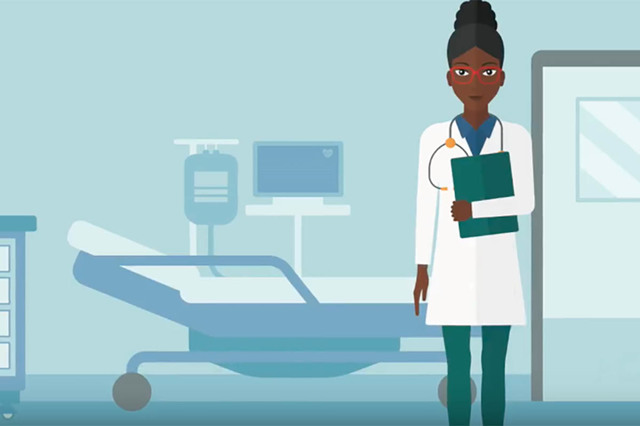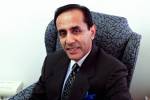Nurses rank the highest at earning our trust, poll shows — VIDEO
At the private practice where Susan VanBeuge works as a nurse practitioner, she and the practice’s physician complement each other. The physician, who often takes on a more clinical demeanor, introduces the nurse as the patient’s advocate and champion.
After consulting with the patient, the doctor will say something along the lines of, “She’s going to get everything fixed and sorted out for you.” He’s saying, she’s going to spend as much time as necessary to solve what you’re going through.
“That’s one of the things that, every time, makes me smile,” says VanBeuge, who’s also an associate professor at UNLV’s School of Nursing in addition to working as a nurse practitioner. “It makes me realize that there is a difference between what we do.”
Interactions like this help cultivate the public’s perception that nurses are the most honest and have the highest ethical standards among professions, according to the results of a December Gallup poll. In fact, nurses have topped the poll, which includes college teachers, lawyers and members of Congress, since it was first asked in 1999, with the exception of 2001, when firefighters came out on top following Sept. 11.
Medical professionals as a whole rate highly, but nurses still surpass pharmacists and medical doctors with 84 percent of Americans rating nurses’ honesty and ethical standards as high or very high.
“It’s really that engagement and that connection we make through our care of patients,” that helps nurses earn the trust of their patients, says John Coldsmith, the chief nursing officer at Centennial Hills Hospital Medical Center.
From the time they’re in school, nurses are trained to use specific body language, tone and wording. Even sitting at the same level as a patient or sitting next to them as opposed to across a desk can improve their experience.
It not only makes a patient feel more comfortable, but can also ensure they get better care.
“Imagine the difference you would get if you stand in the doorway and yell to the patient, ‘Do you need any pain medication?’ That response versus, I walk in, I sit down, I look them in the eye and say, ‘How are you today, do you need any pain medication?’” Carolyn Yucha, dean at the UNLV School of Nursing, says. “The second approach tells them that maybe they can answer, ‘I don’t need pain medication but I’m very upset about X.’ The first approach tells me, you want a yes or no answer so you can run to the next room.”
While training helps create compassionate and conscientious nurses, the profession likely also attracts certain types of people who are predisposed to be good communicators.
During the hiring process, Coldsmith asks prospective nurses why they chose to become a nurse. Nearly every candidate, he says, has a story from their own life that led them to the profession. “That could have been the care of a grandfather, grandmother, mother, father, a sick child in a hospital, where during that experience they noted just the compassion and the care that the nurses showed their loved one and that lead them down the path to be a nurse,” Coldsmith says.
On top of those two factors, nurses don’t reap any financial gain from a patient’s decisions, Yucha says. In other words, one could perceive a nurse to only have a patient’s best interest in mind because the nurse doesn’t make more money if they decide to take a certain prescription drug or undergo a certain procedure.
It’s just one more way a nurse is perceived to be a patient’s advocate, first and foremost.
“It’s an honor. It’s a really big responsibility as nurses that we have, because people do trust us,” VanBeuge says. “So the things that we say and the things that we do are very important.”
Read more from Sarah Corsa at reviewjournal.com. Contact her at scorsa@reviewjournal.com and follow @sarahcorsa on Twitter.





























